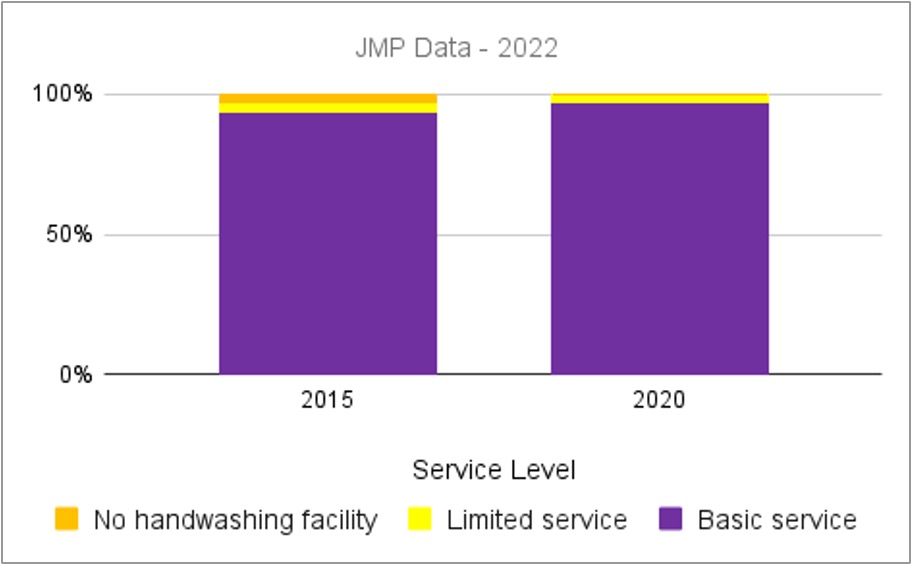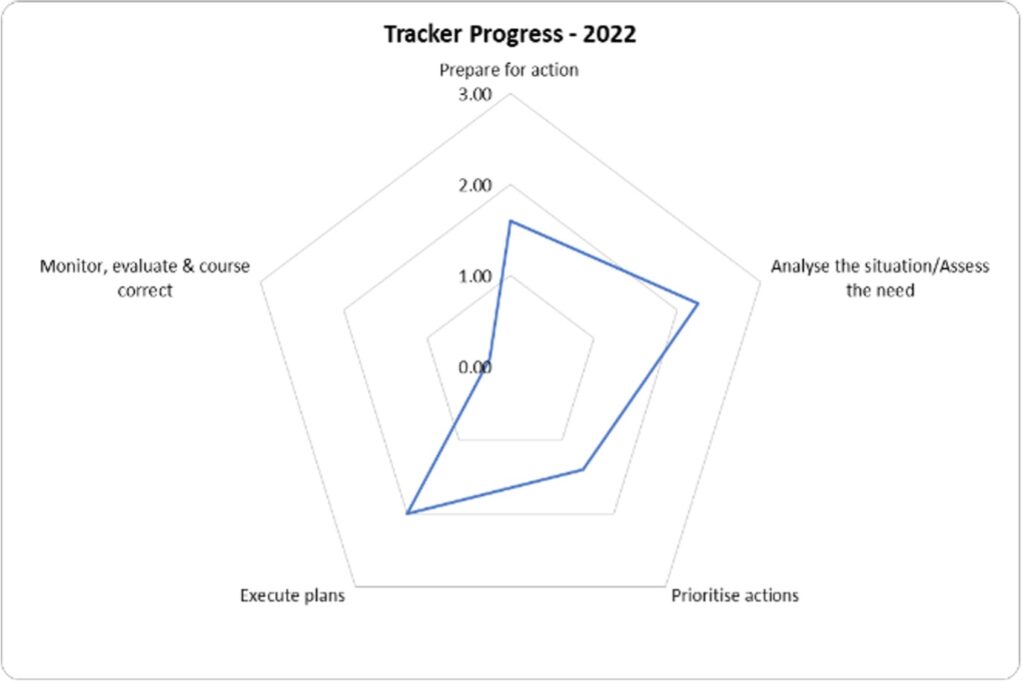Iraq
97.4% of Iraqis have access to basic HH services, suggesting Iraq has the most robust hygiene sector of the countries surveyed. However, Iraq has relatively modest scores of 1.50 and 1.68 on the HHAFT Tracker and Assessment’s 4-point scale, respectively, indicating other drivers limit further progress toward universal HH. HH has long been a cultural practice in Iraq, reinforced through religious practices and leaders, and UNICEF support to social and behaviour change campaigns. In December 2021, Iraq developed and approved a national HH policy, and in doing so significantly strengthened governance around HH and prepared for forward sectoral progress. Ongoing institutional interventions are essential to ensure proper practice.

Tracker

| Milestone | 2023 |
|---|---|
| Prepare for Action | 1.60 |
| Analyse the Situation / Assess the Need | 2.25 |
| Prioritise Actions | 1.40 |
| Execute Plans | 2.00 |
| Monitor, Evaluate and Course Correct | 0.25 |
| Average | 1.50 |
Creation of Iraq’s HH strategy and costed action plan was led by a federal steering committee with robust stakeholder engagement. The country is well prepared for forward progress. It has a strong understanding of the HH situation and needs, priority actions. However, implementation has been delayed due to pending budget approval. The low HHAFT score for M&E and course correction is due to the fact that execution of many activities has yet to start.
Assessment

| Parameter | 2023 |
|---|---|
| Governance | 2.30 |
| Financing | 1.33 |
| Data and Information | 1.25 |
| Capacity Development | 1.00 |
| Innovation | 2.50 |
| Average | 1.68 |
Iraq scores extremely high for governance and innovation, with identification of the Ministry of the Environment as lead; creation of a coordination body; identification of priority settings; national standards and targets for hand hygiene (aligned with JMP indicators); and private sector engagement. Key remaining barriers include securing financing (although it is addressed in the national strategy and a comprehensive budget exists), strengthening data collections, and building capacity. Additionally, there is a need for greater consensus building across sectors to progress on all settings.
